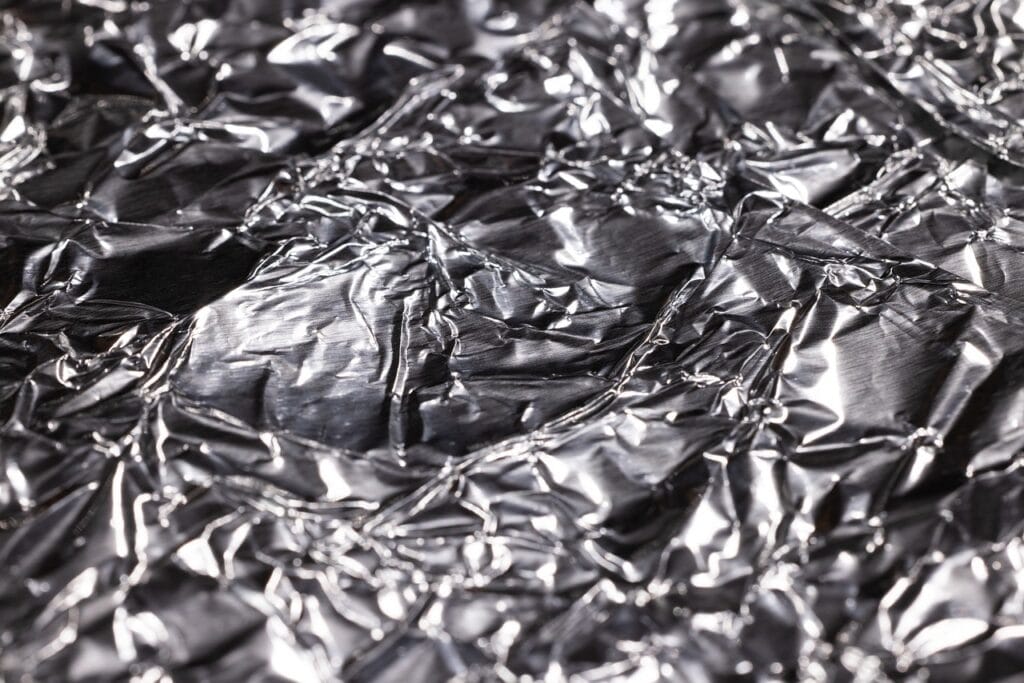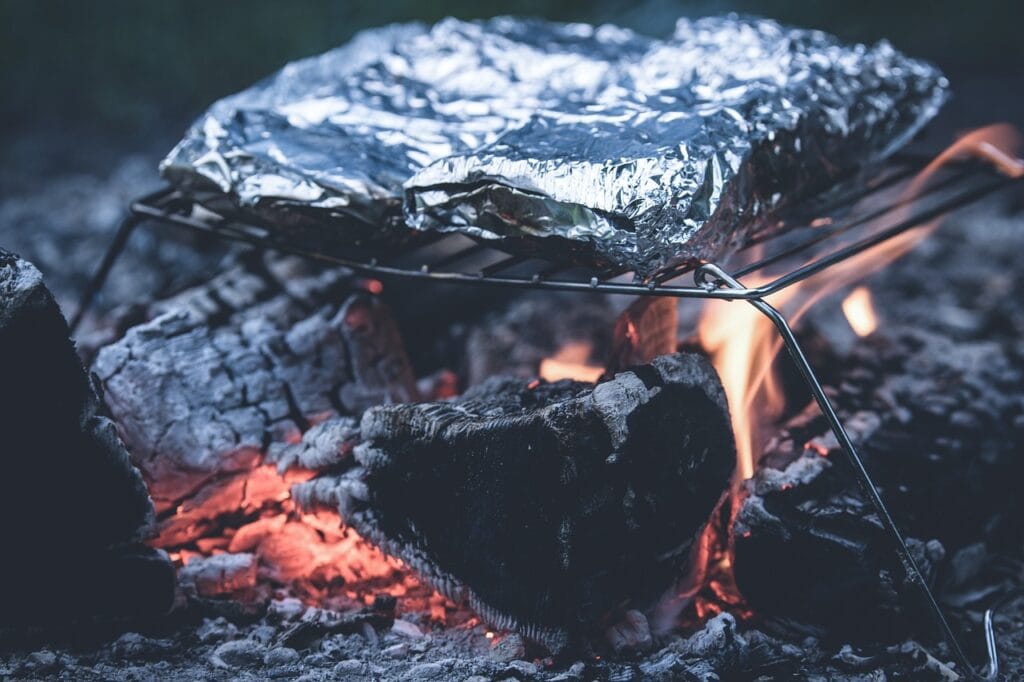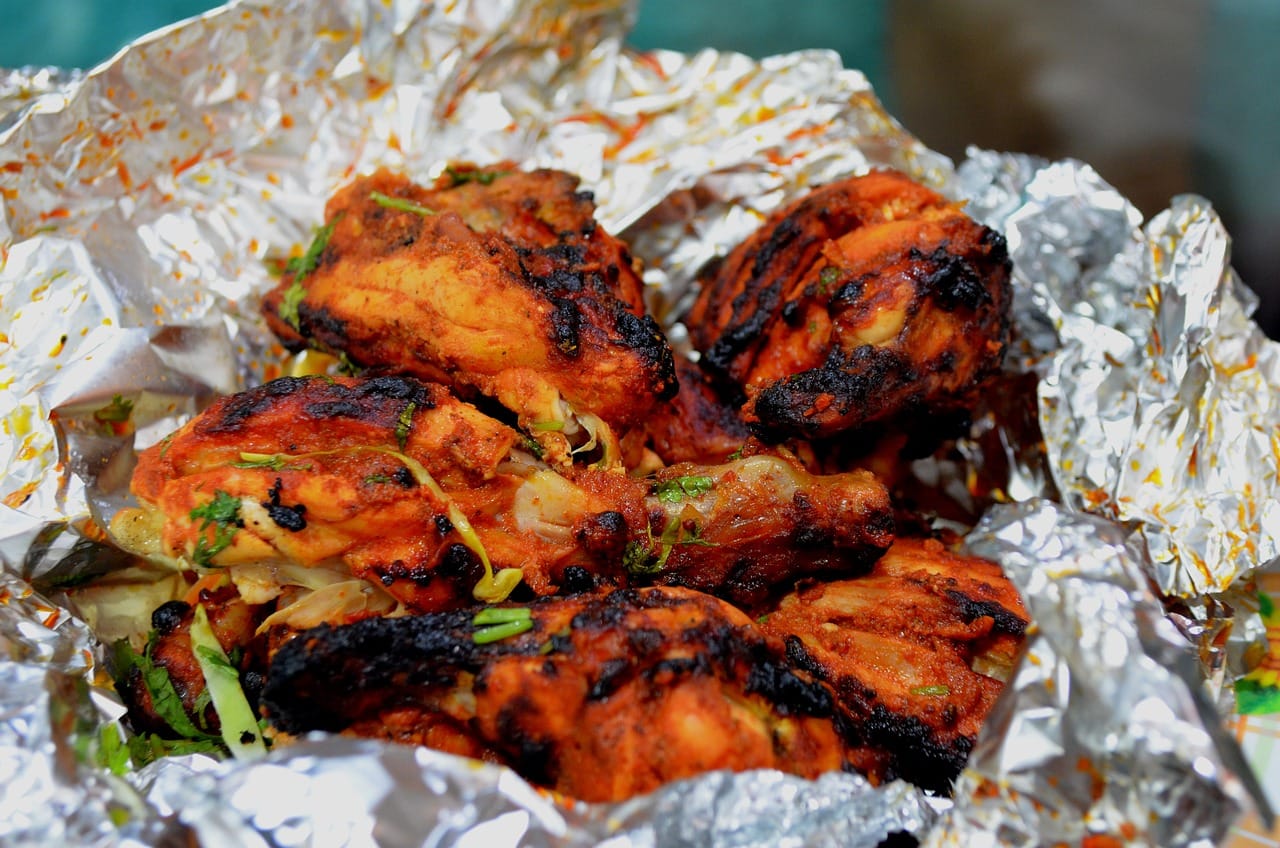There is an opinion that using foil when baking makes the resulting dish harmful to humans. We decided to check whether this fear is justified.
The media reports that foods baked in foil can be harmful to health (for example, “World 24" And "Arguments and facts"), informational And popular science portals, sites about cooking. Users of blogging platforms (“Peekaboo", "Zen", LiveJournal) and female forums discuss the potential dangers of this preparation method. You can find it on YouTube video about the alleged harm of foil, filmed by bloggers who specialize in a healthy lifestyle.
Foil - This is aluminum rolled into a very thin sheet. One side is usually shiny, the other is matte, but in terms of their properties and composition they are nothing no different, these are just the costs of the production process. Foil is actively used in cooking - both during cooking and for storage. If wrap meat, fish or other products in foil when baking, it will retain heat and moisture inside, making the finished dish more juicy. In addition, the baking tray on which the food was baked in foil is much easier to clean later. However, many sources express concerns that you will have to pay for these conveniences with your own health - aluminum from foil can supposedly get into your food. It is argued that high levels of aluminum in the human body can lead to the development Alzheimer's disease And breast cancer.
Aluminum is the third most abundant chemical element on Earth and the most common metal. In small doses it contained in water and in uncooked foods (usually no more than 5 mg/kg, but in some products, such as tea leaves, its concentration can reach much higher values). The highest content of this metal is in dishes made from cereals and grain products (bread, cakes, cookies and other baked goods), vegetables (spinach, radishes and lettuce), mushrooms and drinks (tea and cocoa). That is, it is almost impossible to completely avoid the entry of aluminum into the body. This is not as scary as it sounds, because in small doses it necessary the human body and plays an important role in life.

However, if in excess, aluminum can be dangerous. WHO specialists think It is generally safe for a healthy person to consume up to 2 mg of aluminum per 1 kg of weight weekly. European Food Safety Authority (EFSA) insists, that the harmless dose is half that: 1 mg of aluminum per 1 kg of weight (that is, an adult weighing 60 kg can safely consume about 60 mg of aluminum per week, or about 8.5 mg per day). According to studies conducted in several European countries, this threshold is often exceeded, with adults receiving an average of 0.2 to 1.5 mg per kg of body weight per week, and children and adolescents receiving an average of 0.7 to 2.3 mg per 1 kg. US Centers for Disease Control and Prevention (CDC) claim: The average American eats about 7-9 mg of aluminum per day, which is generally on the safe side. Central Research Institute of Epidemiology of Rospotrebnadzor leads even higher numbers: according to the institute, the human body enters from 5 to 50 mg of aluminum daily (depending on the region of residence).
Can foil really release aluminum into the food you cook in it? European Aluminum Foil Association warnsthat foods containing a lot of acid or salt (such as fruit or meat marinated in vinegar) do release aluminum particles that can end up in the food. In 2019, a group of scientists from the Czech Republic conducted study: They took different types of meat, fish, vegetables, cheese and other products and baked them in foil from five different manufacturers, fresh and marinated. During the heat treatment, a certain amount of aluminum actually passed into food, and to a much greater extent into those products that were previously pickled (and therefore contained more acids and salt). Cooking temperature also played a role - at temperatures less than 160 °C, the metal entered the food more slowly than at 220 °C. When storing food in foil after baking, aluminum continued to accumulate in the food. However, the scientists concluded that the doses they recorded could not in themselves cause health problems, but acknowledged that more research was needed to confirm their results.

Similar in 2020 experiment conducted by scientists from Italy. They took beef, chicken and fish and cooked them three ways: without foil, in foil without spices and in foil with spices. The authors of the experiment then measured the aluminum content in the finished products. In the case of chicken and fish, the highest levels (about 40 mg/kg) were found in samples cooked in foil with spices, and in the case of beef - in foil without spices (the scientists note that this difference in results may be caused by some organic acids in the meat itself). In samples baked without the use of foil, the aluminum content was below the detection level. Scientists note that although the results are below the safe limit set by European regulatory authorities, consuming food prepared in this way may lead to exceeding the permissible weekly limit, taking into account other sources from which aluminum enters the body.
How dangerous is it for this metal to enter the body? "Verified" already wrote that, contrary to popular belief, deodorants and antiperspirants containing aluminum do not cause cancer. Judging by the results of a systematic review scientific literature conducted by Canadian scientists in 2014, there is no credible evidence that aluminum and its derivatives can increase the risk of developing cancer or Alzheimer's disease - at least in the forms and concentrations that a person can consume in food. Later review 2017 showedthat serious concern about the level of aluminum in the body and its possible impact on health should only be shown by people who constantly deal with this metal in their professional activities. Concern about the link between aluminum and Alzheimer's disease appears to be driven by the fact that people with the disease have higher levels of the metal in their bodies than those who don't. However, researchers note that in this case it is not yet clear whether we are talking about the cause of the disease or its consequence.

Not a single authoritative medical source “Verified” could find any recommendations to avoid using foil in cooking. CDC experts, for example, think This method of cooking is safe, and to limit the amount of aluminum entering the body, it is only recommended to avoid excessive consumption buffer forms aspirin and other drugs high in this metal. Most of the aluminum that enters the body is quickly eliminated from the body along with feces, without being able to cause any harm to health. However, in people with kidney disease, it may be difficult to excrete it in the urine.
Thus, food baked in foil can indeed “absorb” some of the aluminum - this is confirmed by a number of studies conducted by scientists from different countries. However, this metal is found in many foods and even in water - when consumed in safe doses, nothing bad can happen to a person (however, regulatory authorities from different countries have not yet reached a consensus on what dose can be considered harmless). Judging by the results of experiments with baking food in foil, eating dishes prepared in this way cannot lead to excess aluminum concentrations in the body, even according to the strictest recommendations. Probably, some caution should be observed only for those people who use medications with a high content of this metal or encounter its high concentrations as part of their professional activities. Also, the aluminum content in the body should be monitored by people with kidney disease, as it may be difficult for them to eliminate it. At the same time, systematic reviews of scientific works have not revealed any proven relationship between the consumption of aluminum in food and Alzheimer's disease or cancer, which are usually feared by opponents of the use of foil in cooking.
Cover photo: pixabay.com
Read on the topic:
- CDC. Public Health Statement for Aluminum
- Is it true that microwaved food becomes carcinogenic?
- Is it true that deodorants and antiperspirants containing aluminum cause cancer?
If you find a spelling or grammatical error, please let us know by highlighting the error text and clicking Ctrl+Enter.






